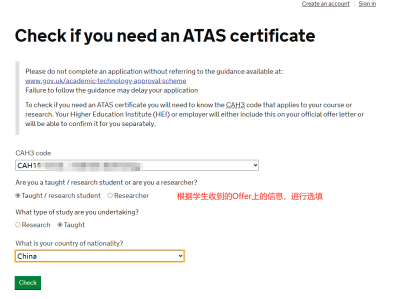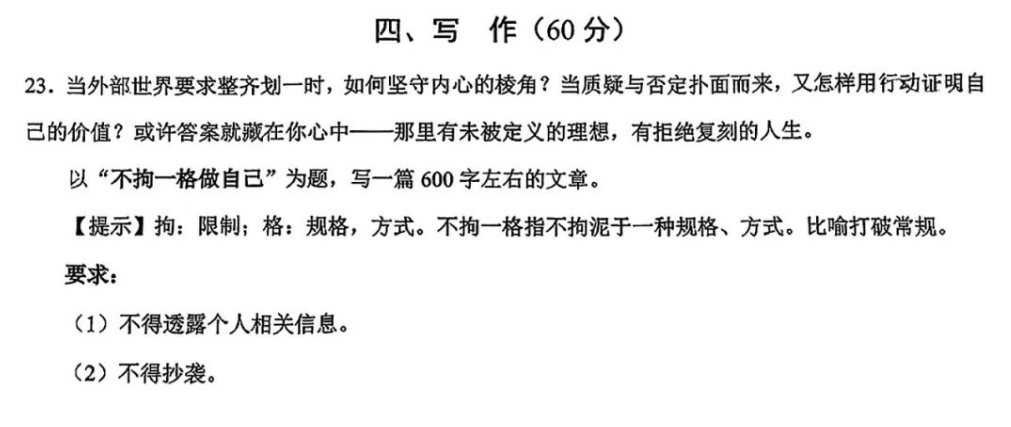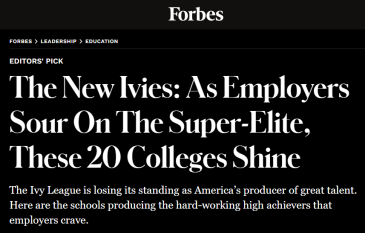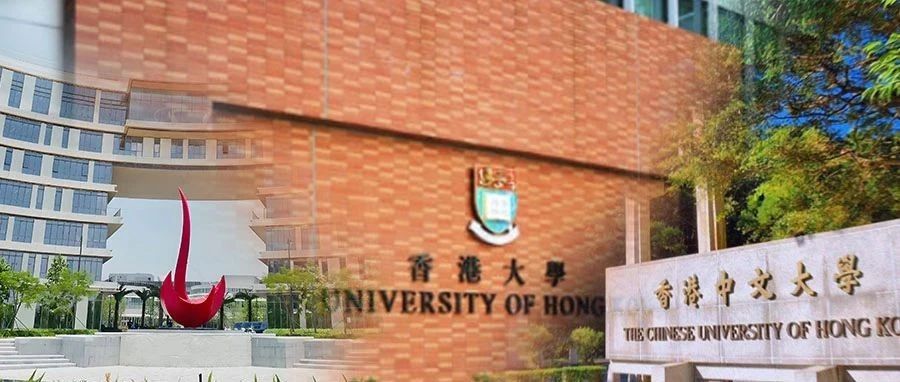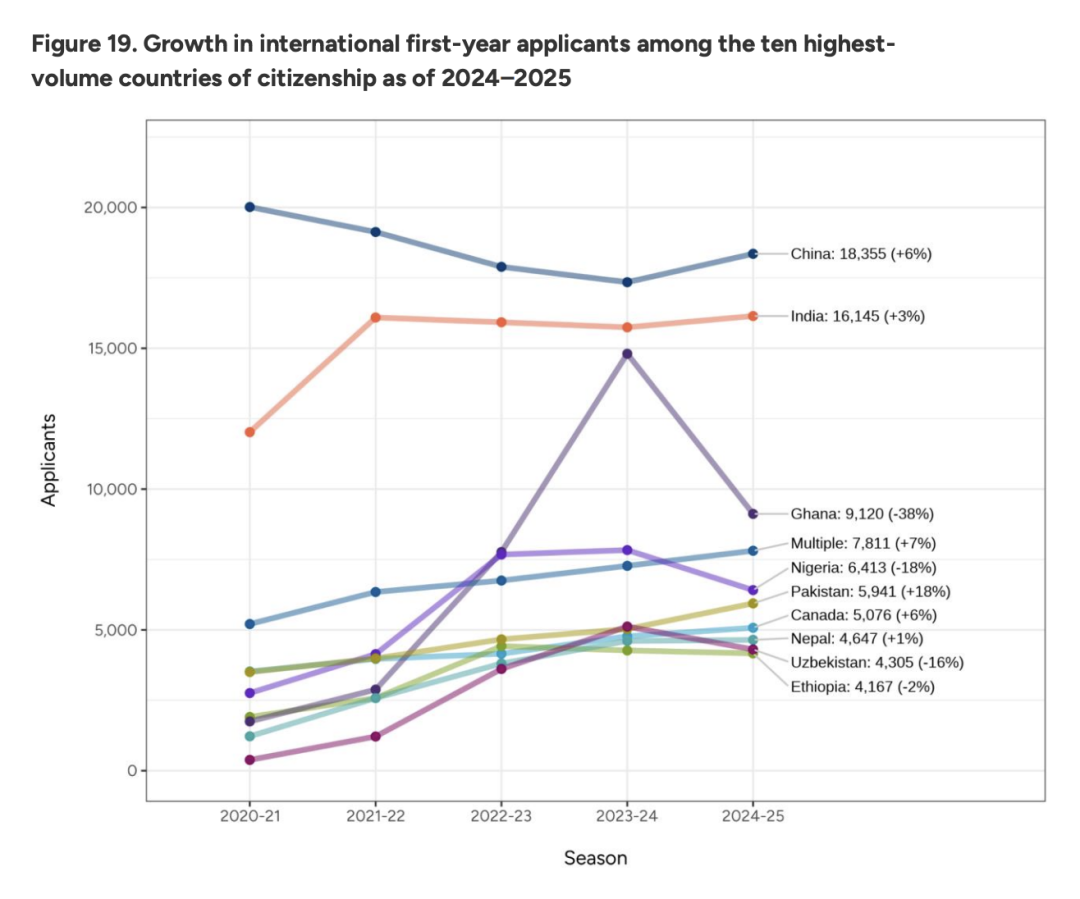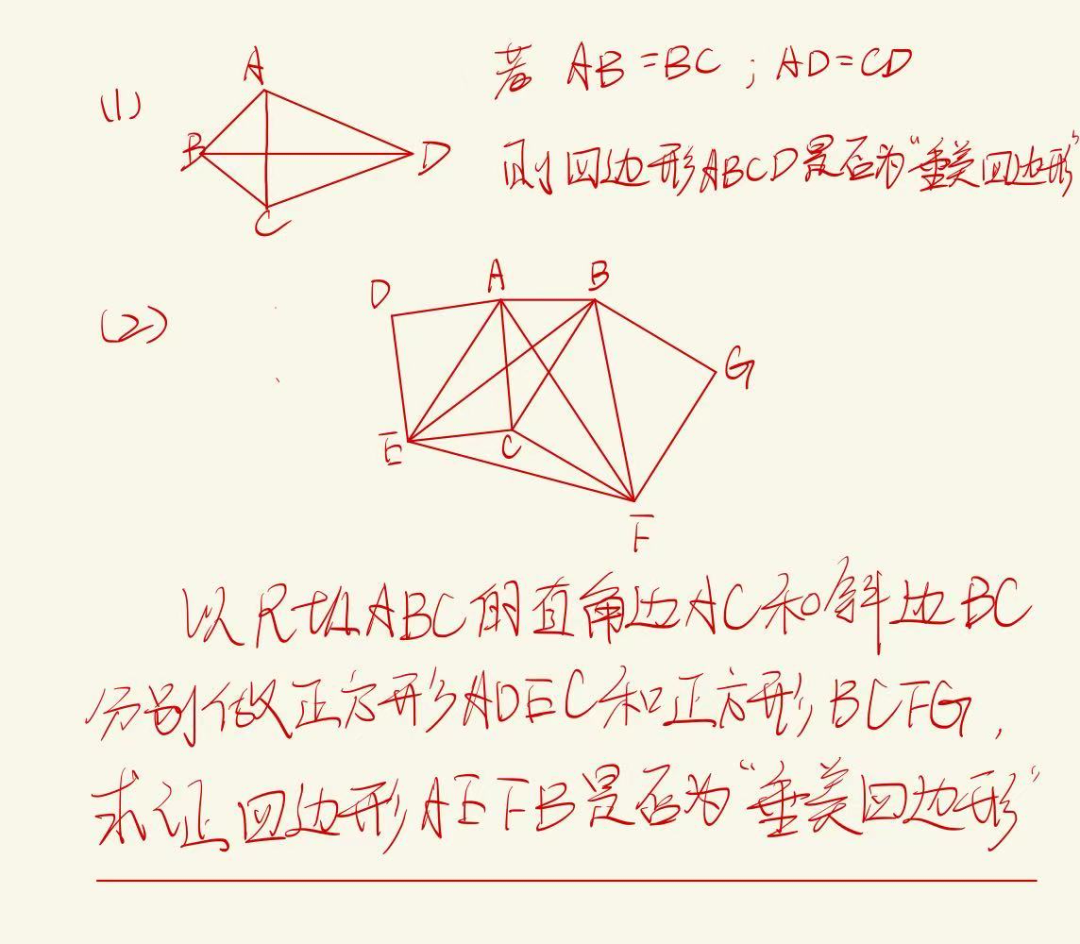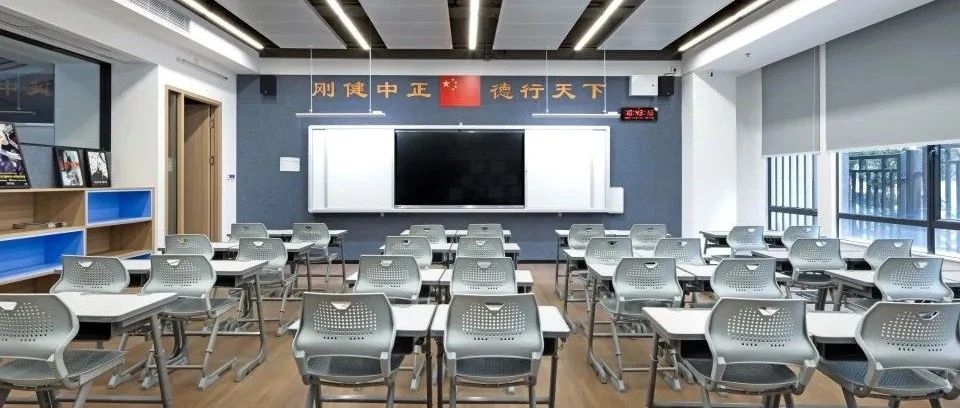众所周知,芝加哥大学的文书题目和要求素以刁钻著称。对于许多申请芝加哥大学的同学来说,撰写芝加哥大学文书是一件绞尽脑汁、令人头疼不已的事情。
为了尽可能地帮助到同学们在申请季中写出具有特色的优质文书,我们在文章《2024-25芝加哥大学补充文书全解析》中逐题解析了今年芝加哥大学必选补充文书(why school)和六个可选补充文书(六选一)的撰写要点。
今天,则给大家准备了一些历年芝加哥大学录取文书中的优秀写作范例,给大家参考学习。当中的每一篇文书,申请者都通过自己的讲述方式向招生官传达了自身性格、价值观和生活与芝加哥大学相符的地方。
内容篇幅较长,还请大家耐心观看。接下来,就让我们来一起看看能让招生官怦然心动的“5篇芝加哥大学优秀范文”吧
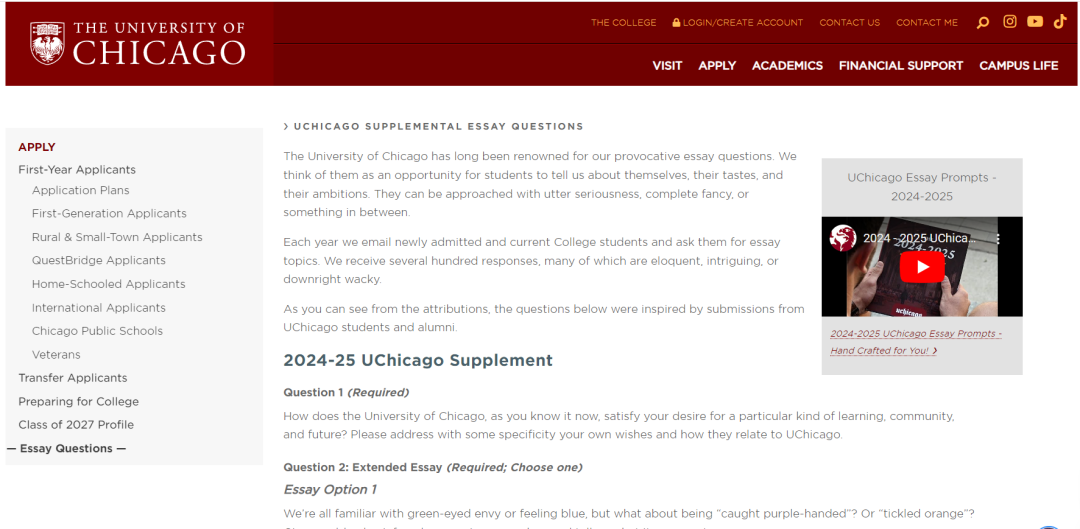
▲芝加哥大学文书要点解析↑
01、芝加哥大学新生范文
英文原文
Did I mention I’m a cultural philosopher interested in starting a Neo-Confucian reformation through literature and music? Well, I am. And there’s no better place for me than UChicago. Here’s why:
When I visited the Leo Strauss Centre at UChicago in June 2018, its managing editor Prof. Gayle McKeen led me to the top floor of Regenstein, where Strauss’ notes and manuscripts are stored.
While teaching at UChicago, Strauss dug into ancient philosophers’ esoteric scripts and did a very good job deciphering them -- and the trick lies in those notes. After I realized this, my summer camp roommate never saw me before 10 pm for two weeks. For my own little reformation, a lot of deciphering and arrangement need to be done, for which Strauss’ method will provide an ideal guide.
UChicago is the only institution that grants access to those notes, and I wonder when my roommate will see me since there is no curfew for undergraduates. (Answer: still 10 pm, since that’s when Regenstein closes.)
Strauss was pretty smart, but he would’ve been more efficient if he had something called “Digital Humanities,” an area in which UChicago is now the undisputed leader.
I am excited to benefit from and contribute to this promising enterprise, as I personally experienced its convenience when I pulled statistics of the Encyclopédie of Diderot and d'Alembert from Prof. Robert Morrissey’s digitized French literature project, which was an immense help to my research on the Enlightenment.
I can see myself compiling and digitizing the “Classic of Documents” with Prof. Edward L. Shaughnessy from East Asian Language and Civilizations department, comparing the respective frequency of Confucius’ use of “Ren” and “Yi” in this work, and investigate the subtleties of Neo- Confucian thoughts.
UChicago is the only school I am applying to that opens to undergraduates the course “Adaptation & Translation in Theater-Making.” The intercultural and interdisciplinary approach of this course makes it a perfect resource for me to refine my “Wen Tianxiang” and begin creating other works.
The music course “Social and Cultural Studies of Music” will deepen my understanding of the connection between music and the philosophy behind it, and the Composition Seminar will vastly improve my skills as I can receive criticisms from world-renowned composers. While technically the seminar is for graduate students, Prof. Augusta Thomas. Thomas assured me that distinguished undergraduates can participate as well.
Most excitingly, the “Interdisciplinary Studies in the Humanities” major allows me to fit all of the above into my four-year-journey. My final BA project, as I envision now, will be a full opera that embodies Neo-Confucian philosophy in a modern story, performed in English and accompanied by a Western-style orchestra.
I also look forward to pursuing a multitude of activities at UChicago’s UROCK Climbing Club (I am actually quite a climber -- didn’t see that coming, did you?), its Symphony Orchestra, its University Theatre, and of course its Philosophy Club -- while I certainly hope to stage my reformation, sometimes it’s ok to just be a casual intellectual who sits around and talks, or to just have fun.
中文翻译
我有没有说过我是一个文化哲学家,有兴趣通过文学和音乐掀起一场新儒学改革?我确实是。没有比芝加哥大学更适合我的地方了。原因如下:
2018年6月,当我参观芝加哥大学的列奥-施特劳斯中心(Leo Strauss Centre)时,该中心的总编辑盖尔-麦肯(Gayle McKeen)教授带我来到雷根施坦因的顶楼,那里存放着施特劳斯的笔记和手稿。在芝加哥大学任教期间,施特劳斯钻研古代哲学家的深奥文字,破译工作做得非常出色--而诀窍就在于这些笔记。
在我意识到这一点后,我的夏令营室友连续两周晚上十点前都没有见过我。对于我自己的小改革,需要做大量的破译和整理工作,施特劳斯的方法将为我提供理想的指导。芝加哥大学是唯一一所允许查阅这些笔记的学校,我不知道我的室友什么时候会看到我,因为本科生没有宵禁。(答案是:仍然是晚上 10 点,因为那是雷根施泰因关门的时间)。
施特劳斯相当聪明,但如果他有一个叫“数字人文”的东西,他的效率会更高,而芝加哥大学现在是这一领域无可争议的先驱。我从罗伯特-莫里西(Robert Morrissey)教授的法国文学数字化项目中调取了狄德罗和达朗贝尔的《百科全书》的统计数据,这对我的启蒙运动研究大有帮助。我可以看到自己与东亚语言与文明系的 Edward L. Shaughnessy 教授一起编纂《文献通义》并将其数字化,比较孔子在这部著作中使用“仁”和“义”的频率,探究新儒家思想的精妙之处。
芝加哥大学是我申请的唯一一所向本科生开放“戏剧创作中的改编与翻译”课程的学校。这门课程的跨文化和跨学科方法使其成为我完善《文天祥》并开始创作其他作品的绝佳资源。音乐课程“音乐的社会和文化研究”将加深我对音乐与音乐背后的哲学之间的联系的理解,而作曲研讨会将大大提高我的技巧,因为我可以接受世界著名作曲家的批评。虽然从技术上讲,研讨会是为研究生开设的,但奥古斯塔-托马斯教授(Prof. Augusta Thomas. 托马斯向我保证,优秀的本科生也可以参加。
最令人兴奋的是,“人文科学跨学科研究”专业让我可以在四年的学习生涯中完成上述所有任务。按照我现在的设想,我最后的学士学位项目将是一部完整的歌剧,在现代故事中体现新儒家哲学,用英语演出,并由西式管弦乐队伴奏。
我还期待着在芝加哥大学的UROCK攀岩俱乐部(其实我很喜欢攀岩--你没想到吧?)、交响乐团、大学剧院,当然还有哲学俱乐部参加各种活动--虽然我当然希望能实现自己的改革,但有时做一个闲坐聊天的知识分子,或者只是找点乐子,也是可以的。
02、芝加哥大学新生范文
英文原文
As I watch children at the Chicago Heights Early Childhood Centre, I scribble notes on how they share the limited snacks I’ve given them and what stages they go through as they discuss who gets what. After watching a few groups distribute their scarce resources, I give each child a lollipop before I leave the centre with a full notebook.
A few hours later, I’m walking up 59th Street to the Becker Friedman Institute. As I drop off my observations for “The Environment Project,” I’m excited that I’m contributing to experimental economics under economists like Professor John List through the Chicago Experiments Initiative.
Well, I guess I might not get this position of student volunteer at the Becker Friedman Institute immediately. But for me, this small fantasy is symbolic of all the things I want to experience at UChicago as a prospective energy economist. Studying at Chicago would be a dream come true for me: bringing economics into everyday life and applying it to environmental problems, while roaming Chicago and having fun.
At Chicago, in terms of economics, I’m looking forward to diving deeper into my major by taking unique courses like Experimental Economics and Creativity, where I’ll further my understanding of economics beyond core micro/macroeconomics.
Creative and experimental thinking is, I believe, what is needed in my career as an energy economist and these two courses will prepare me well to step up to my challenge. Similarly, I’d also be excited to take Theory of Auctions, a course that will equip me with necessary knowledge for further studies into carbon cap-and-trade markets, a field that I’ve gained particular interest in after my summer assisting Professor Hojung Park with his research.
As for my interest in the environment, I’m hoping to explore this field through the Environmental Economics and Policy track inside the Environmental and Urban Studies minor, a choice that fits me well.
Starting with the required courses focused on policy-making, I also hope to journey through courses like Energy: Science, Technology, and Human Usage and Introductory Glaciology to strengthen my foundations in environmental science, a subject I’ll need more expertise on for my career.
I also plan to take Climate Change in Literature, Art, and Film (ENST 12520) to study how popular media characterizes environmental problems and what climate change looks like from the perspective of humanities.
I’m so excited about all the opportunities to combine these two fields of interest at Chicago. From mentoring high school students’ research at the Centre for Robust Decision Making on Climate and Energy Policy to discussing UChicago’s sustainability plan with the Green Economics Group and conducting my own studies through the EPIC Undergraduate Summer Research Fellowship, I’ll have plenty of places to apply economics to environmental problems.
These opportunities will hopefully also give me the chance to give back to the UChicago community and I’ll try to share my high school experiences of teaching children as a Climate Reality Leader and leading the school energy club’s various experiments and research.
But outside my focus in economics and environmental studies, I hope to take courses like Contemporary French Cinema to deepen my understanding about French culture, as well as Dinosaur Science, a course I’ve been interested ever since I received a UChicago email two years ago.
Though all of this will occupy most of my time, I’m going to try to squeeze in time to play pétanque with the Lawn Sport Enthusiasts as well as visiting the museums around Chicago. With some luck, I’ll find other art history freaks for whom “museum-going” is an exciting weekend plan and together, we’ll become well-acquainted with Mary Cassatt and Robert Delaunay paintings at the Art Institute of Chicago by the end of our four years, not to mention Opo Ogaga.
I’m sure that Chicago will be the best place for me to start my career as an energy economist and researcher. But speaking of research, there’s one thing I was troubled about in my Becker Friedman fantasy. Will Chicago kids settle for Chupa Chups? Or is there some Midwest treat I’ll have to discover?
中文翻译
我一边观察芝加哥高地幼儿中心的孩子们,一边潦草地记录他们如何分享我给他们的有限零食,以及他们在讨论谁得到什么时经历了哪些阶段。看完几个小组分配他们稀缺的资源后,我给每个孩子一个棒棒糖,然后带着满满的笔记本离开了中心。
几小时后,我沿着第59街步行前往贝克尔-弗里德曼研究所。当我放下 "环境项目 "的观察结果时,我很兴奋,因为通过芝加哥实验计划,我将在约翰-利斯特教授等经济学家的领导下为实验经济学做出贡献。
好吧,我想我可能不会马上得到贝克尔-弗里德曼研究所学生志愿者的职位。但对我来说,这个小小的幻想象征着作为一名未来的能源经济学家,我想在芝加哥大学经历的一切。在芝加哥大学学习对我来说是梦想成真:将经济学带入日常生活,应用于环境问题,同时漫游芝加哥,享受乐趣。
在芝加哥大学,就经济学而言,我期待通过选修《实验经济学》和《创造力》等独特的课程,深入学习我的专业,在核心的微观/宏观经济学之外,进一步加深对经济学的理解。
我相信,作为一名能源经济学家,我的职业生涯需要创造性和实验性思维,而这两门课程将为我迎接挑战做好充分准备。同样,我也很高兴能选修《拍卖理论》(Theory of Auctions),这门课程将为我进一步研究碳限额交易市场提供必要的知识。
至于我对环境的兴趣,我希望通过环境与城市研究辅修课程中的环境经济学与政策方向来探索这一领域,这一选择非常适合我。从以政策制定为重点的必修课程开始,我还希望学习能源、科学、技术和人类使用等课程:科学、技术与人类使用》和《冰川学入门》等课程,以加强我在环境科学方面的基础,因为我的职业生涯需要更多这方面的专业知识。我还计划选修《文学、艺术和电影中的气候变化》(ENST 12520),研究大众媒体如何描述环境问题,以及从人文学科的角度看气候变化是什么样的。
我很高兴能有机会在芝加哥大学将这两个感兴趣的领域结合起来。从在气候和能源政策稳健决策中心指导高中生的研究,到与绿色经济小组讨论芝加哥大学的可持续发展计划,再到通过EPIC本科生暑期研究奖学金开展自己的研究,我将有很多机会将经济学应用于环境问题。希望这些机会也能让我有机会回馈芝加哥大学社区,我会努力分享我在高中作为气候现实领导者教导孩子们以及领导学校能源俱乐部进行各种实验和研究的经历。
除了经济学和环境研究之外,我还希望选修当代法国电影等课程,以加深我对法国文化的了解,同时我还希望选修恐龙科学这门课程,自从两年前收到芝加哥大学的邮件后,我就对这门课程产生了浓厚的兴趣。
虽然这一切将占据我大部分的时间,但我还是会尽量挤出时间与草坪运动爱好者们一起打打壁球,顺便参观一下芝加哥附近的博物馆。如果运气好的话,我还能找到其他艺术史狂人,对他们来说,"参观博物馆 "是一个令人兴奋的周末计划,到四年结束时,我们将一起熟悉芝加哥艺术学院的玛丽-卡萨特(Mary Cassatt)和罗伯特-德劳内(Robert Delaunay)的画作,更不用说奥波-绪加(Opo Ogaga)了。
我相信,芝加哥将是我开始能源经济学家和研究员职业生涯的最佳地点。但说到研究,有一件事让我在贝克尔-弗里德曼的幻想中烦恼不已。芝加哥的孩子们会满足于 Chupa Chups 吗?还是中西部有什么美食需要我去发掘?
03、芝加哥大学新生范文
英文原文
The human mind tends to dislike inconsistencies. Possibly for this reason, philosophers created (or discovered?) the “law of non-contradiction”: for example, something can’t be limited and unlimited at the same time. So if there’s a limited amount of matter in the universe (clearly an assumption, but let’s grant it and see where it takes us), how can Olive Garden serve an infinite amount of food (not that I’d complain about more breadsticks)?
Both Eastern and Western philosophy have, perhaps without realizing it, struggled with the Olive Garden dilemma for centuries. One possible answer lies in the condition “at the same time.”
True, matter in the universe might be limited at any single point in time, and so is the amount of food Olive Garden can produce, but Olive Garden is making food ALL THE TIME! Chemistry, biology, and environmental science all teach us that matter and energy recycle, something mirrored in Neo-Confucian cosmology.
In the li- qi (principle-matters) system, the li of the universe is fixed, and the qi at any time is limited, but as time goes on, the qi breaks and reorganizes itself according to the li, destroying and creating matter endlessly.
The Hegelian dialectic, while working a little differently, shows the same thing. The Thesis and the Anti-Thesis are limited at a given point in time, but as their conflicts grow and materialize over time, a Synthesis is formed -- creating stuff endlessly! (Well, maybe until the “end of history.”) The Daoist dichotomy of Yin and Yang goes a step further: “The Supreme Void divides to The Two; the Two give birth to The Four; The Four create The Eight....”
As the two essential elements group and regroup themselves, myriad creatures are being created, disintegrated, and recreated.
The spirit of this self-generative binary paradigm is continued in modern Computer Science, where groupings of 0’s and 1’s generate infinite possibilities. Although the computer has only limited storage, variations with time create limitless images on the screen. Similarly, although the universe has only a limited amount of matter, over an infinitely long period of time Olive Garden can surely serve limitless amounts of food.
Even if the amount of matter in this universe is finite, we have no way of knowing it -- the universe could be bound, but its terminus is beyond our perception. Similarly, the food at Olive Garden could in fact be limited, and the customers might simply perceive it to be limitless because they can’t see its limit. In other words, the food of Olive Garden is made infinite by the customers!
As German philosopher Immanuel Kant formulated in his Critique of Pure Reason, the unperceivable world -- the thing-in-itself, aka the secrets in the kitchen -- is unknowable and could be finite or infinite.
But what makes it seem infinite is our limited capacity to know, or in this case, to eat. I’m sure many creatures of enormous appetite (myself included) have tried to eat an Olive Garden empty, just as those of outstanding intellect have tried to explore the metaphysical reality of the world, but as far as I know, none have succeeded. This makes the food at Olive Garden effectively infinite.
Political theories offer tantalizing possibilities for explanation, until each is devoured in time. The combination of the self-generating matter of the universe and the limited capacity of mind -- parallel to the continuously refilling Olive Garden salad bar and the limited appetite of each of us -- can lead to a feeling of frustration. I remember a time when I almost finished off the salad bar, but seconds later they refilled it.
Nothing could encompass how I felt at that moment besides the word “frustration.” Francis Fukuyama, one of my favourite contemporary political philosophers, likely had the same frustration when he concluded in 1989 that “history has ended with the globalization of liberal democracy,” only to be proven wrong as cultural and ethnic conflicts arose in the 1990s.
Fukuyama’s teacher, Samuel Hungtington, then tried to capture this new political zeitgeist in his “Clash of Civilizations,” only to be proven in-comprehensive when ideological conflicts took place again in the Middle East in the 2000s. Numerous other theories arose to make sense of our geopolitics, and some did a good job -- for a period of time.
As the situation itself keeps changing, those theories inevitably become less accurate and less relevant. Political phenomena in the world, like the food at Olive Garden, just keep presenting themselves ceaselessly, and neither our minds nor our appetites seem capable of fully handling them.
Hence, we start to question the question. Things -- food and the world -- seem so limitless and overwhelming that we start to doubt whether there’s only a limited amount of matter after all. Maybe the initial proposition itself is wrong!
As I wrote this previous line, I finally realized how infinity is truly possible: it is our very ability to doubt, to think outside the box, to question fixed propositions, that is truly infinite. My favourite philosopher of science, Thomas Kuhn, acknowledges as much: true, no single account of the world is fully accurate, but in attempting to formulate those accounts, we create many different ways of looking at the world -- many mini-worlds to ourselves. Each “paradigm shift” is a complete revolution of thought, a collective “thinking outside the box,” a fruit of human creativity, which is limitless and leads us closer and closer to the ultimate reality.
I guess that’s why Olive Garden is so popular.
中文翻译
人的思维往往不喜欢前后矛盾。可能正是出于这个原因,哲学家们创造(或发现?)了“不矛盾律”:例如,一件事物不可能同时是有限和无限的。那么,如果宇宙中的物质是有限的(这显然是一个假设,但我们姑且相信它,并看看它能把我们带向何方),橄榄园又怎么能提供无限量的食物呢(我倒不是抱怨要更多的面包条)?
几个世纪以来,东方哲学和西方哲学也许都在不知不觉中与橄榄园的难题作斗争。一个可能的答案在于“同时”这个条件。诚然,宇宙中的物质在任何一个时间点上都可能是有限的,橄榄园所能生产的食物数量也是有限的,但橄榄园无时无刻不在生产食物!化学、生物学和环境科学都告诉我们,物质和能量是循环的,这一点在新儒家宇宙观中也有所体现。
在“里-气”(原理-物质)系统中,宇宙的“里”是固定不变的,任何时候的“气”都是有限的,但随着时间的推移,“气”会根据“里”的变化而自我打破和重组,无休止地破坏和创造物质。
黑格尔的辩证法虽然运作方式略有不同,但却体现了同样的道理。正题和反题在特定的时间点上是有限的,但随着时间的推移,它们之间的冲突会不断增加并具体化,从而形成一个综合体--无休止地创造东西(也许直到“历史的终结”。)!道家的阴阳二分法更进一步:“太极生两仪,两仪生四象,四象生八卦...”。
随着这两种基本元素的组合和重组,无数生物被创造、分解和再创造。这种自我生成的二进制范式的精神在现代计算机科学中得到了延续,0和1的组合产生了无限的可能性。虽然计算机的存储空间有限,但随着时间的变化,屏幕上会出现无限的图像。同样,虽然宇宙中的物质数量有限,但在无限长的时间内,橄榄园肯定能提供无限多的食物。
即使宇宙中的物质数量是有限的,我们也无从知晓--宇宙可能是有边界的,但其终点却在我们的感知之外。同样,橄榄园的食物实际上可能是有限的,而顾客可能只是因为看不到它的极限而认为它是无限的。
换句话说,橄榄园的食物因顾客而变得无限!正如德国哲学家伊曼纽尔-康德在《纯粹理性批判》中所阐述的,不可感知的世界--事物本身,也就是厨房里的秘密--是不可知的,可能是有限的,也可能是无限的。
但让它看起来无限的是我们有限的认知能力,或者说在这里,我们有限的吃的能力。我相信许多食欲旺盛的生物(包括我自己)都曾试图吃空橄榄园的食物,就像那些智力超群的人试图探索世界的形而上现实一样,但据我所知,没有一个人成功过。因此,橄榄园的食物实际上是无限的。
政治理论提供了诱人的解释可能性,直到每一种可能性都被时间吞噬。宇宙中自我生成的物质与思维的有限能力--就像橄榄园沙拉吧不断添满的食物与我们每个人有限的胃口--的结合会让人产生挫败感。我记得有一次,我几乎吃完了沙拉吧,但几秒钟后他们又重新装满了沙拉。除了“挫败感”这个词,没有什么能概括我当时的感受了。
弗朗西斯-福山(Francis Fukuyama)是我最喜欢的当代政治哲学家之一,当他在1989年得出“历史已经随着自由民主的全球化而终结”的结论时,很可能也有过同样的挫败感,但随着20世纪90年代文化和种族冲突的出现,他的结论被证明是错误的。福山的老师塞缪尔-亨廷顿(Samuel Hungtington)在他的“文明的冲突”中试图捕捉这一新的政治思潮,但在2000年代中东再次发生意识形态冲突时,他的理论被证明是不全面的。
为了理解我们的地缘政治,出现了许多其他理论,其中一些在一段时间内做得不错。随着局势本身的不断变化,这些理论的准确性和相关性不可避免地会降低。世界上的政治现象就像橄榄园的食物一样,不断地呈现在我们面前,而我们的头脑和胃口似乎都无法完全应付。
因此,我们开始质疑这个问题。事物--食物和世界--似乎是如此无边无际,让人应接不暇,以至于我们开始怀疑物质的数量是否有限。也许最初的命题本身就是错的!
当我写下这一行字时,我终于意识到无限是如何真正可能的:正是我们怀疑、跳出框框思考、质疑固定命题的能力,才是真正的无限。我最喜欢的科学哲学家托马斯-库恩(Thomas Kuhn)也承认这一点:的确,没有任何一种对世界的描述是完全正确的,但在试图制定这些描述的过程中,我们创造了许多不同的看待世界的方式--我们自己的许多迷你世界。每一次“范式转换”都是一次彻底的思想革命,是一次集体的“发散思维”,是人类创造力的结晶,它是无限的,引领我们越来越接近终极现实。
我想这就是橄榄园如此受欢迎的原因吧。
04、芝加哥大学新生范文
英文原文
After asking the children to gather around a large table at the centre of the room, I announce the challenge. “I’m now going to open this bag of lollipops. Take whatever you’d like!”
In a split second hands are scrambling all over the desk and the children scream in delight and in frustration. In a few seconds, everyone retreats from the table to protect their bounty and I see the plastic bag has exploded. Looking around the room, I see a mixture of smiles and frowns just as I expected. Tough Soomin has quickly grabbed hold of eight; little Jaeyong has none.
“Don’t eat them yet! Yes, Junhyeon, I mean it. Just look around, guys. Is everyone happy?”
Many kids shake their heads passionately. Soomin looks a little sheepish.
“OK. But this is where economics comes in, right? I know you’re tired of me saying this by now, but always remember: economics is all about thinking about what to do with all our stuff.”
Bringing up the PowerPoint slide, I introduce them to the Tragedy of the Commons and tell them that this way of distribution was Option 1: Leave everyone to do whatever they want, the very process that causes a Tragedy. After collecting their lollipops back (a difficult process that involves my begging), I announce Option 2: Government Regulation.
I pass all the lollipops to Minsoo, assigning him the government role. “Your job is to give out these lollipops to all of your friends, based on what you think is the best way.”
I’m sure this will yield a better result, since this is a textbook economic solution. But I’m surprised. What I see is nothing close; I see our own society. Minsoo gives priority to his closest friends, letting them choose flavors and giving them two each. Many others don’t get the flavor they wanted. When he has left-overs, he pockets a few for himself.
My presentation loses a lot of meaning with many kids still unhappy. Afterwards, other solutions like communist systems and auctions with Monopoly money don’t work much better. I’m hoping that the final solution will work though.
Bringing back all the lollipops to the center table, I announce the ultimate solution, promising kids that after this round they’ll be able to keep their lollipops.
“I’m giving you guys ten minutes to talk about who should get what. I want everyone to be happy!”
I watch the debate closely, hoping to see the negotiation process bear fruit as predicted by Nobel laureates Elinor Ostrom and Ronald Coase. This is supposed to be the best solution for small communities, and it appears so. After spending weekends together, the children know each other well enough for discussion.
Those who don’t want lollipops quickly announce their decisions and help monitor the debate. When they eventually work out something, I ask them if they consider this to be the best solution. Everyone seems to nod and I end the lesson after presenting the ideas of Ostrom and Coase.
I pack my stuff after the lesson when two children come to me. “We didn’t get the flavour we wanted. There were some people who secretly took the flavour we wanted and we had to let them because they were older than us.” I tell them to wait, and quickly return with the lollipop flavours they wanted from a nearby convenience store. At least they have a smile as they go back home. But I’m slightly troubled.
I was simulating an economy with some twenty children. But the difficulties of finding a solution even in this microcosm had me thinking: what about the real world?
I’ve learnt that the world is complex and that it’s easy to miss so many important people by relying on classroom theory. It’s why I hope to start tackling the world’s problems at UChicago, to make sure that, as much as possible, everyone gets the lollipops they want. And that’s what lollipops have taught me.
中文翻译
请孩子们围在教室中央的一张大桌子旁,然后我宣布挑战开始。"现在我要打开这袋棒棒糖。你们想拿什么就拿什么!"
霎时间,桌子上到处都是争抢的手,孩子们高兴地叫着,沮丧地看着。几秒钟后,每个人都从桌子上退了下来,保护自己的 "战利品",我看到塑料袋已经爆炸了。环顾四周,正如我所预料的那样,孩子们笑脸相迎,眉头紧锁。坚强的 Soomin 很快就抢到了八个,而小 Jaeyong 一个也没有。
"先别吃!是的,俊贤,我是认真的。你们看看周围。大家都开心吗?"
许多孩子热情地摇头。苏敏看起来有点害羞。
"好吧,但这就是经济学的作用,对吗?我知道你们现在已经厌倦了我说这些,但请永远记住
记住:经济学就是思考如何处理我们所有的东西。
我拿出 PowerPoint 幻灯片,向他们介绍 "公地悲剧",并告诉他们这种分配方式是方案 1:让每个人都为所欲为,而这正是导致悲剧的过程。在收回他们的棒棒糖后(这是一个艰难的过程,需要我的乞求),我宣布了方案 2:政府监管。
我把所有的棒棒糖都递给了民秀 让他扮演政府的角色 "你的任务就是把这些棒棒糖分给你所有的朋友" "根据你认为最好的方法"。
我相信这会产生更好的结果,因为这是一个教科书式的经济解决方案。但我很惊讶。我看到的并不接近,我看到的是我们自己的社会。Minsoo 优先考虑他最亲密的朋友,让他们选择口味,每人给他们两个。很多其他人都没有得到他们想要的口味。当他吃剩的时候,会给自己留一些。
我的演讲失去了很多意义,很多孩子还是不开心。之后,其他的解决方案,比如共产主义制度和用大富翁的钱进行拍卖,效果都不怎么好。不过,我希望最终的解决方案能够奏效。
我把所有的棒棒糖拿回到中间的桌子上,宣布了最终解决方案,并向孩子们承诺,这一轮之后,他们就可以保留自己的棒棒糖了。
"我给你们十分钟时间讨论谁应该得到什么。我希望大家都开心!"
我密切关注这场辩论,希望看到谈判进程如诺贝尔奖获得者埃莉诺-奥斯特罗姆和罗纳德-科斯所预言的那样取得成果。对于小社区来说,这应该是最好的解决方案,看起来也是如此。
在一起度过周末后,孩子们彼此熟悉,足以进行讨论。那些不想要棒棒糖的孩子很快就会宣布他们的决定,并帮助监督辩论。当他们最终达成一致时,我问他们是否认为这是最好的解决方案。大家似乎都点了点头,在介绍了奥斯特罗姆和科斯的观点后,我结束了这节课。
下课后,我收拾东西时,两个孩子走了过来。"我们没有得到想要的味道。有一些人偷偷拿走了我们想要的味道,我们不得不让他们拿走,因为他们比我们大。我让他们等一下,然后迅速从附近的便利店买了他们想要的口味的棒棒糖回来。至少,他们在回家的路上还带着微笑。但我还是略感烦恼。
我是在模拟一个有二十来个孩子的经济体。但即使在这个微观世界中也很难找到解决方案,这让我想到:现实世界又如何呢?
我了解到,世界是复杂的,依靠课堂理论很容易错过许多重要的人。这就是为什么我希望在芝加哥大学开始解决世界问题,尽可能确保每个人都能得到他们想要的棒棒糖。这就是棒棒糖教会我的。
05、芝加哥大学新生范文
英文原文
I could always tell when summer started by the number of mosquito bites I had on my leg. And as an 8 year old--exasperated by endless Band-Aids and cortisone globs--the mosquitoes’ constant nagging bothered me.
Was my blood too sweet? Did I fight too much with my brother? Only through the Internet did the diagnosis become clear: light clothing and constant motion were homing targets for the parasites. More research revealed that the bites swelled so much because of a histamine response the body sent to fight the anticoagulant the mosquito carried.
But these questions only led to more questions – not just about my bites, but about the people around me. Why did Grandma prick her finger every day and count rice grains? Why was Grandpa not able to speak? Biology answered all of them.
From the fibrin nets that make up my scabs to the millions of scattered wavelengths that create the earthy hue of my mom’s spider plants, biology was my portal to understanding life and its endless kaleidoscope of mysteries. It translated the foreignness of toothaches, goosebumps, and common colds into a language that the little me could speak. It served as my own map to the world’s hidden trove of secrets and became a sense of wonder and comfort I could rely on.
But as I got older biology gave me an insatiable desire to go beyond hole punching leaf disks to measure photosynthesis. I took it upon myself to explore a different kind of animal than mosquitoes: the human mind.
This past summer, I assisted Dr. Mark Fisher at UC-Irvine with his research about cerebral micro-bleeds in young athletes. I recruited local high school students, whose MRI scans and medical histories were studied to make earlier and more effective diagnoses of CTE, a degenerative disease brought on by repeated concussions. I also attended medical journal club meetings with prospective medical students each Friday, where I learned about the risks of tPA treatment in ischemic stroke patients, the use of optical histology, and other facets of neurology.
But biology is not only a portal to comprehending the world around me. It has also become a gateway to understanding myself. Learning that the immune system uses the antigen of invaders to fortify its own defences taught me to persevere when my results fall short of my expectations and embrace my vulnerabilities to my advantage.
Learning that humans share 99% of the same DNA can teach me to appreciate humanity's similarities instead of being divided by its differences.
But most of all, learning that the body can learn to walk again, even after paralysis, taught me to have hope in the face of disease and disaster--to maintain faith in the human spirit and see life as Asagai did in a Raisin in the Sun: not an endless circle we futilely march around and around in but a line of infinite possibility.
Just as Alice found her identity after falling down the rabbit hole, as Milo found a love for life and learning through the phantom tollbooth, and Neo saw truth and reality by taking the red pill, I discovered in biology the paradox of living.
Through the erosion of telomerase sequences and apoptosis of cells, biology showed me how incredibly mortal we are as human beings. But despite our corporeal limitations, biology showed me that we can achieve immortality. We can rise above our earthly circumstances and allow our minds to transcend and our hearts to conquer atrophy and illness.
We empower our bodies to recover by simply believing in the effect of a placebo. We reduce our coronary heart risk and prolong our lifespans by reducing stress and thinking optimistically.
Through the power of the mind, our bodies can heal.
Through the faculty of thoughts, we hold the mantle to shape our own fates.
And through the portal of biology, I find time and time again vitality, strength, and autonomy.
中文翻译
我总是能从腿上被蚊子叮咬的次数判断出夏天是什么时候开始的。作为一个 8 岁的孩子,我对无休止的创可贴和可的松感到厌烦,蚊子不断的唠叨让我心烦意乱。
我的血是不是太甜了?我是不是和哥哥打得太多了?只有通过互联网,诊断才变得清晰起来:轻薄的衣服和持续的运动是寄生虫的归宿目标。更多的研究表明,被叮咬的地方之所以会肿胀,是因为身体为了对抗蚊子携带的抗凝血剂而产生的组胺反应。
但这些问题只会引出更多的问题--不仅是关于我的叮咬,还有关于我周围的人。为什么奶奶每天都要扎手指数米粒?为什么爷爷不能说话?生物学回答了所有这些问题。
从构成我痂皮的纤维蛋白网,到创造我妈妈蜘蛛植物泥土色泽的数百万个散射波长,生物学是我理解生命及其无尽的万花筒奥秘的入口。它将牙痛、鸡皮疙瘩和普通感冒的陌生感转化成了小小的我所能使用的语言。它是我通往世界秘密宝库的地图,成为我可以依赖的惊奇和安慰。
但随着年龄的增长,生物学给了我永不满足的欲望,让我不再局限于在叶片上打孔来测量光合作用。我开始探索一种与蚊子不同的动物:人类的大脑。
去年夏天,我协助加州大学尔湾分校的马克-费舍尔博士研究年轻运动员的脑微小出血。我招募了当地的高中生,对他们的核磁共振扫描和病史进行研究,以便更早、更有效地诊断出 CTE(一种由反复脑震荡引起的退行性疾病)。我还参加了每周五与未来医科学生举行的医学期刊俱乐部会议,了解了缺血性中风患者接受 tPA 治疗的风险、光学组织学的应用以及神经病学的其他方面。
但生物学不仅是我理解周围世界的入口。它也是了解我自己的门户。当我了解到免疫系统会利用入侵者的抗原来加强自身的防御能力时,我学会了在结果不尽如人意时坚持不懈,并将自己的弱点转化为优势。
了解到人类拥有 99% 相同的 DNA,可以让我学会欣赏人类的相似之处,而不是被其差异所分裂。但最重要的是,了解到身体即使在瘫痪后也能学会重新行走,让我学会了在疾病和灾难面前抱有希望--保持对人类精神的信心,并像《阳光下的葡萄干》中的朝日一样看待生命:这不是一个我们徒劳地绕来绕去的无尽圆圈,而是一条充满无限可能的线。
正如爱丽丝掉进兔子洞后找到了自己的身份,米洛通过幽灵收费站找到了对生活和学习的热爱,尼奥通过服用红色药丸看到了真理和现实,我在生物学中发现了生命的悖论。通过端粒酶序列的侵蚀和细胞的凋亡,生物学向我展示了作为人类,我们是多么令人难以置信的凡人。但是,尽管我们的肉体受到限制,生物学却告诉我,我们可以实现永生。我们可以超越世俗的环境,让我们的思想超越,让我们的心灵战胜萎缩和疾病。我们只需相信安慰剂的效果,就能让身体恢复健康。通过减轻压力和乐观思考,我们可以降低冠心病风险,延长寿命。
通过思想的力量,我们的身体可以痊愈。
通过思想的力量,我们可以掌握自己的命运。
通过生物学的门户,我一次又一次地发现了活力、力量和自主性。
由于篇幅限制,本文先跟大家分享5篇芝加哥大学的优秀范文。





